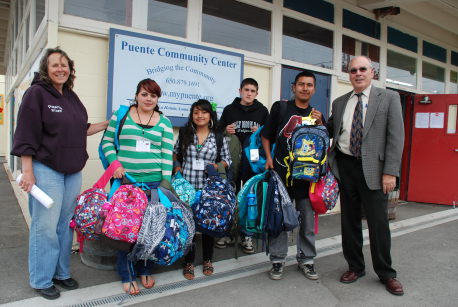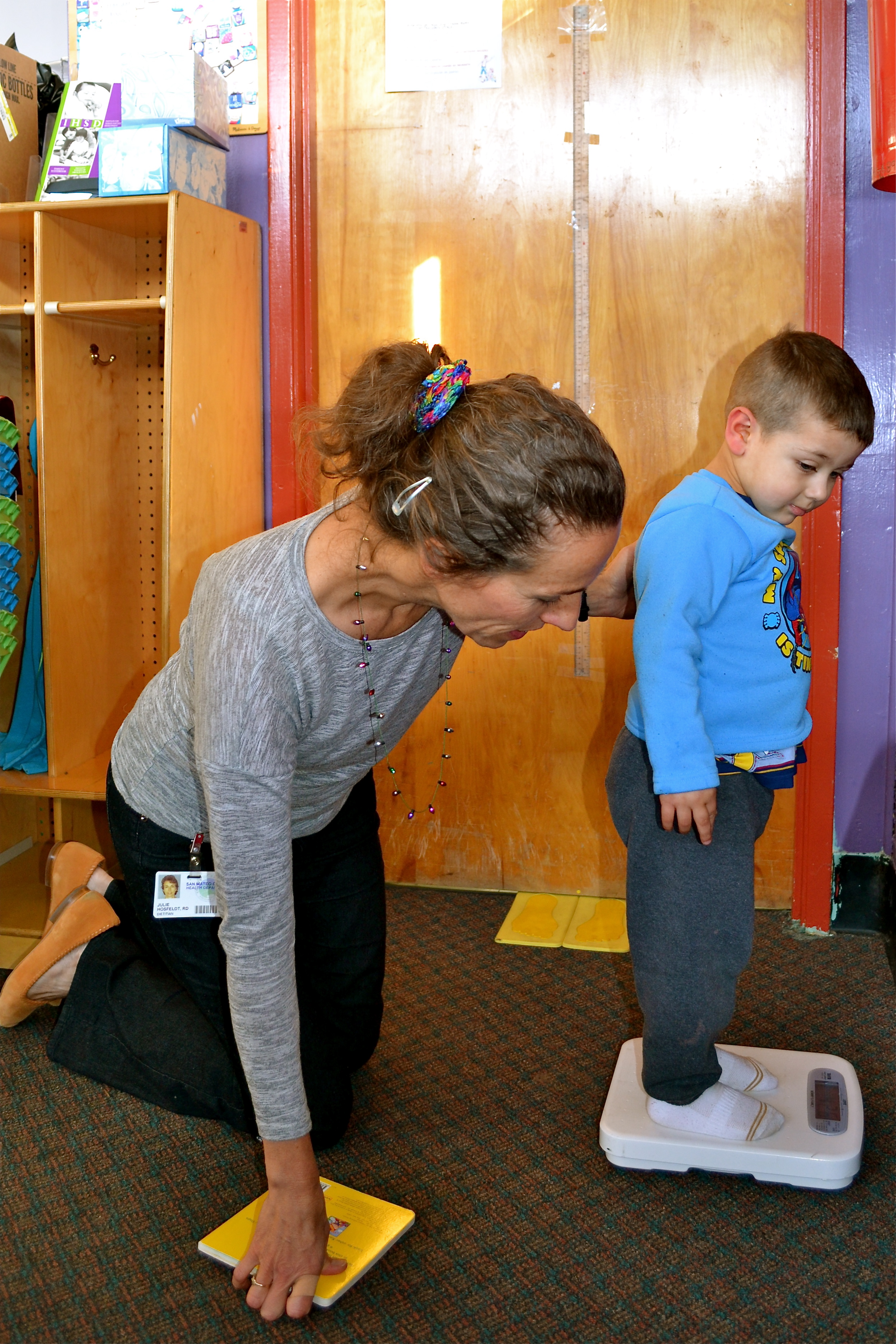The South Coast will no longer be a “doctor-free” zone thanks to a milestone initiative to bring wraparound primary health care services to the area: a mobile health care van dedicated to serving those who need it most.

The mobile clinic, a co-initiative of Puente and San Mateo County Health System, will serve roughly 3,000 adults in Pescadero, La Honda, Loma Mar and San Gregorio who have literally been without access to primary care since 2009.
A $1 million, two-year grant funded by Measure A, a county sales tax that passed in November 2012, will finance the clinic in its initial phase. It will pay for a van, along with medical equipment and a Spanish/English bilingual staff of four, including the part-time services of a physician, a nurse, a patient services assistant and a community outreach worker/driver.
“It’s like a doctor on wheels. It’s expected that people will go for every aspect of heath care problems, like asthma and hypertension and diabetes,” explains Puente Executive Director Kerry Lobel.
In contrast to San Mateo County’s urban residents, locals here very often lack even the means of transportation to get to a physician in San Mateo or Redwood City, let alone time to make it to follow up appointments or pick up medications. Some people work in fields or plant nurseries from dawn to dusk. Others already suffer from chronic health problems or are on public assistance, and don’t have the wherewithal to help themselves.
The clinic will begin serving all these populations starting in 2014. It’s a major victory for Lobel, who has been lobbying county officials for a consistent, reliable health care solution ever since the county cut funding for a different mobile health van in 2009.
Both mobile medical vans follow a history of attempts to provide health care services to the South Coast, dating back to 2002. Previous iterations have also included a part-time clinic, funded by foundation grants, inside a space provided by the La Honda-Pescadero Unified School District. Half Moon Bay’s Coastside Family Medical Center also opened a Pescadero satellite clinic for a time.
San Mateo County Supervisor Don Horsley has been steadfast in his support of Puente’s vision for a community health solution on the South Coast. To get the funding approved, he had to convince some colleagues that the mobile health clinic was the right answer.

“People say, ‘We’ve tried this before and it’s never worked.’ But I think we have a much higher chance of success this time,” Horsley says.
This new model differs from the previous mobile clinic in several important ways. This time, residents will be served by a personal primary care physician who will be able to treat medical problems and see them every week, rather than referring them to someone else. Secondly, Puente will fund health promoters who will personally visit people’s homes and housing sites to learn about people’s health histories and help them feel comfortable about seeing the new doctor in town. That will boost participation, which has been a stumbling block in the past.
“The only way it won’t be successful is if we can’t get enough people to go,” says Lobel.
Lastly, the program will be supplemented by Stanford University physicians who are keen to serve a rural population. Stanford Professor Dr. Gabe Garcia will oversee their staffing and training. Dr. Garcia has a longstanding interest in rural health care and has been working with Puente and lobbying the county for a mobile health clinic for many months.
“I believe access to health care is a big part of creating good community,” says Dr. Garcia. “The ideal system would be not only health care, but also preventative care and education.”
Under Dr. Garcia’s guidance, Puente will use the mobile clinic staff to institute a holistic medical prevention model that not only keeps people healthy, but considers aspects of their lifestyle that may be harming them.
For instance, studies have shown that rural residents are more likely to smoke, less likely to exercise and eat healthily, and are typically more obese than their urban counterparts.
Farm workers in particular are at higher risk of chronic diseases like high cholesterol and hypertension, as compared with the general population.
In addition to the prevalence of on-the-job injuries and rashes, farm workers struggle with depression. They are also more susceptible to certain cancers, like prostate cancer, leukemia and stomach cancer, than the general population.
At the same time, farm workers may be less likely to seek medical care because of cultural stigmas or because they speak an indigenous language and won’t be understood.
From now on, Puente’s approach to health care will be what Dr. Garcia calls “looking upstream.”
“If there’s problems with access to food, regular exercise, safe housing, access to medicine -- that’s part of the total package,” he says. “Many farmers don’t eat the healthy foods they produce. They can’t choose the right foods that lead to weight loss and better control of blood sugar.”

Puente devotes considerable resources to keeping South Coast residents healthy, from Zumba classes to community discounts for healthy produce at the Pescadero Grown! Farmer’s Market.
The ultimate goal is to build a bricks-and-mortar health clinic in Pescadero, according to Lobel – something permanent, so locals know they’ll never have to face a medical problem alone ever again.
“If we’re going to function as a community, we need to have this very basic service,” says Lobel.
To donate to Puente, visit https://rally.org/puente. To learn more about health care at Puente, contact Kerry Lobel at klobel@mypuente.org or (650) 879-1691.
